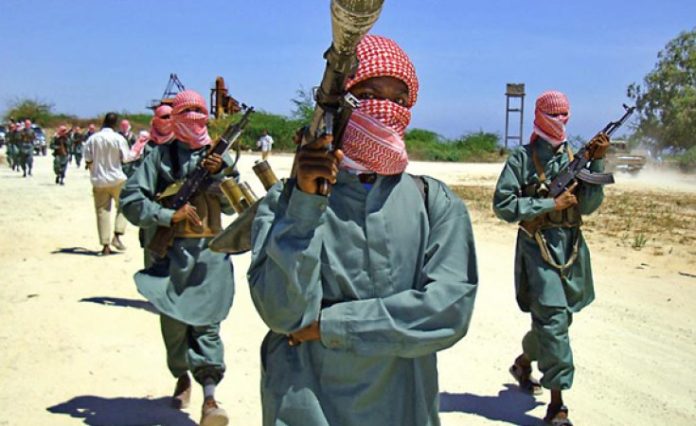Earlier accusations that Kenya soldiers were involved in illegal charcoal trade in Somalia returned to haunt Nairobi’s bid to have militant group Al-Shabaab listed as a terrorist group.
On Thursday, Kenya was fuming after the UN Security Council rejected its proposal to place the group in the same league as Al-Qaeda and ISIS, with Somalia specifically lobbying against tighter sanctions against the militants.
“We are disappointed because it seems unconscionable that any country, least of all a country that is in the UN Security Council, and that has lost its citizens in the terror attacks of Al-Shabaab, would not wish to see all necessary measures brought to bear on this hideous organisation,” Foreign Affairs Principal Secretary Macharia Kamau told the Nation.
Acknowledging “surprise” at the decision, Mr Kamau said Kenya will continue to fight Al-Shabaab “using all the means necessary and available to it, including the currently existing sanction regimes that we have fought for previously and that are in force within the UNSCV counterterrorism regime”.
CHARCOAL TRADE
The decision means Kenya and the region will continue to deal with Al-Shabaab using sanctions that were aimed at controlling civil conflict in Somalia, and not those meant to tackle terrorism, despite loopholes that could allow the militants to prosper.
Mr Abukar Dahir Osman, Somalia’s permanent representative to the UN in New York, claimed that Al-Shabaab can be tamed through existing UN Security Council resolutions as long as there is regional cooperation.
“[We] urge [the] Kenyan government to implement existing Security Council Resolution 751 targeting AS [Al Shabaab], including the ban on illegal charcoal trade in Somalia, which is the lifeline of the AS to finance its operations in the region,” he wrote on his Twitter page on Wednesday night.
The bid to have Al-Shabaab listed as a terrorist group was initially resisted by the UK and the US when Kenya first fronted the proposal in 2014.
But the change of heart by Somalia, which supported Kenya in 2014, is likely to baffle the region.
SANCTIONS
The Somali envoy said Kenya’s suggestion was “unjustified”, suggesting that Kenya had failed to stop the illegal charcoal trade that was Al-Shabaab’s mainstay, alongside piracy.
He was referring to various UN Monitoring Group reports on Eritrea and Somalia, which said that the Kenya Defence Forces, who are part of the African Union Mission in Somalia, were collaborating with the militants to continue exporting charcoal using the port of Kismayu. Kenya has invariably denied the claim.
Kenya, Somalia, the US and several other countries have already declared Al-Shabaab a terrorist group.
This year, Kenya wanted the sanctions against the group elevated and listed under Security Council Resolution 1267 of 1999 (and amended several times to suit situations).
EMASCULATE
Mr Kamau argued that Al-Shabaab is subverting the purpose of humanitarian aid by diverting it from civilians, an action no one should support.
He argued that such listing could bring more international focus on Al-Shabaab, like the coalition that has fought and weakened ISIS, and limit the impact of Al-Shabaab through a blanket imposition of harsh sanctions.
Under resolution 1267, the group could still be banned from travelling, have its assets frozen and barred from receiving training or buying weapons from the open international market.
But it could also mean no humanitarian agency would be allowed to deal with them in areas they operate, and countries or organisations found flouting this could be penalised. This was strongly opposed by US lobby groups.





























